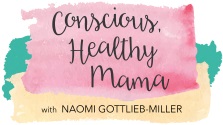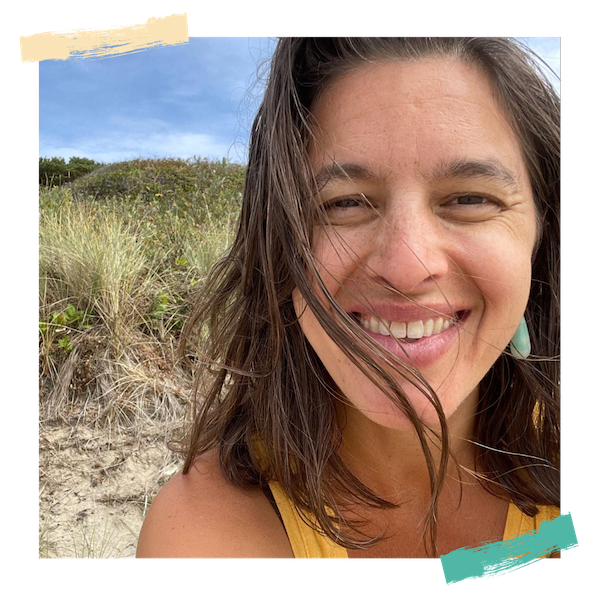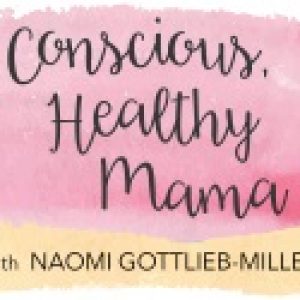This past weekend, I went on a media fast.
I spent 38 hours offline, essentially. No social media and no email. I did have to use the Internet a few times but I was otherwise unplugged.
It was a very stressful 38 hours.
And I want to do it again.
Mostly, I felt stressed because I knew there were some emails I hadn’t gotten to before my self-imposed social media/email blackout. I prefer to be timely in my responses, aiming for no more than 48 hours between when I receive an email to when I respond. I’m not always great at this, but it’s what I aim for.
I tend to be a bit of a workaholic. I once charted my working hours for a few weeks and it turns out that my tendency is to work somewhere in the 55hours a week range. Even for the DC area, that’s a lot, especially considering the nature of what I do – within the health and wellness community, a 40+ hour-work week is considered to be excessive. Most people transition into professions like mine to work LESS.
I still had to work on Sunday, and what I discovered (and honestly what I already knew), is that I use social media to distract me from the tasks at hand. Especially those tasks which are more creative in nature and require more of my consciousness and brainpower. If I am struggling in writing a blog or a newsletter, I open Facebook and scroll through my feed just to see if there is something to refocus me so that I can go back to my harder task refreshed.
The problem is that usually the diversion turns into the main attraction. It doesn’t take much for me to be sucked in.
This weekend, I was finishing up the planning for a new program I am offering this spring and I didn’t have Facebook to distract me. It was really tough because every 45 minutes or so, my brain really did need a break. So I did other things. I did a few minutes of yoga when my body was feeling stiff. I went into the kitchen to do 10 minutes of food prep. I did a little bit of light cleaning. I watered some of my plants. I cuddled with Milly while she watched some TV on the couch.
I finished planning and felt very accomplished.
I also thought of how this can relate to so many other areas of our lives.
In yoga, when you’re working on a pose that is challenging, it feels easier to check out with a mental diversion than to stay with the challenge of the pose. Crow pose is a good example of this. Most people who are strong enough to do crow pose, don’t focus enough on the actions of the pose that they need to commit to more fully. Instead they travel mentally to the “end” of the pose, in which they have landed on their faces. As soon as you allow your thoughts to travel far enough away from your breath and from the present, holding the pose becomes too much and you allow yourself to disconnect from it. At that point, you decide that the pose is too hard. It’s not for you. You can’t do it. Might as well just throw in the towel.
We do the same in life, especially when it comes to changing habits.
When a new habit is tricky or if you experience any resistance towards it, you will come up with ways to prevent yourself from actually trying to succeed. You will come up with every plausible obstacle, real or created, to make sure that the new habit fails.
The best example of this is when someone is trying to lose weight and they know that cookies are their Achilles’ heel, but despite that, they still keep buying cookies. “But my kids love them,” they’ll say. “I don’t want to deprive the kids!”
Or they’ll say something like, “If I was strong enough, the cookies could still be here, but I wouldn’t be tempted.”
Nope. Sorry. That’s not how it works. At least not at first. There are plenty of alcoholics who can eventually be around alcohol on occasion, and not be thrown back off the wagon. But 2 days into sobriety, they really shouldn’t be hanging out with co-workers at a happy hour.
I’m not trying to imply that alcoholism is simply a bad habit.
What I am saying (using an incredibly dramatic example) is that you can either make it easy on yourself to create change or you can make it incredibly difficult.
One of the big theories of sustainable habit change is to make your new habit so easy you can’t say no. It seems silly, but it works. You can build on the small habits that start to become regular and familiar parts of your daily routine. When you make something extra challenging, it’s harder to maintain. The chances of failure are greater.
In terms of my media fast, the truth is that I already had habits in place that made a day-long media blackout feel more doable. I don’t check Facebook after dinner and I rarely check email after dinner, although my true cutoff is 7pm. Same with Instagram. I don’t check any of these until after I’ve eaten breakfast and taken Milly to school in the morning. So I usually have a good 14-hour Internet break, which allows me to wind down more easily in the evening and stay on task to get things done, as well as get Milly out the door on time in the morning.
Adding 22 hours to that was challenging, but not too much given that it was Sunday and I try to stay offline on Sunday morning anyway so I can do a week’s worth of food prep undisturbed.
I’m more interested in making Sunday a no-work day. Not just no-Internet, but no work. Because what I really noticed is that I was reaching for my phone less. I didn’t feel the need to carry it everywhere. Even when we were at a birthday party for one of Milly’s friends, I knew that other people were taking pictures, so I didn’t feel like I needed my camera to record everything. I just enjoyed the party and the kids dancing to the celebratory fiddling provided by the birthday girl’s musician daddy. I was so much more present. So much more connected. And although I was “unplugged” I felt more available to have conversations. I was far less distracted.
On Monday morning, right after dropping Milly off at school, I raced home and like the technology addict I am, I flipped open my laptop and I responded to a few of those emails I’d neglected through the weekend. I checked Facebook to see what I had missed. Not too much, turns out. Also, I found myself zoning out and getting distracted again, when I needed to get out the door and get to class.
I’m not sure what the moral of this story is.
I like Facebook and Instagram. I like having an outlet to let my mind relax. To zone out and take a few moments to release my creative mind from its work so my brain can recharge. I like staying connected to friends, commiserating and sharing the stories of our lives.
I also like getting things done.
I think there is space in the world for both the intense focus and the desire for distraction.
This blog, for example. It was tough, but I kept Facebook closed the entire time I spent writing this and I didn’t once turn on my phone to check if anyone had liked my most recent Instagram post. I did this a little bit on principle, I’ll admit. I’m also behind schedule and if I had done either of those things, it would have taken me much more time to finish.
I’m proud that it took me only 45 minutes or so to write this. I imagine how much more productive I’d be if I avoided my usual distractions all the time while working on tough projects. I like the idea of it…
For now, though, my brain needs a break. Off to get some mental candy.




